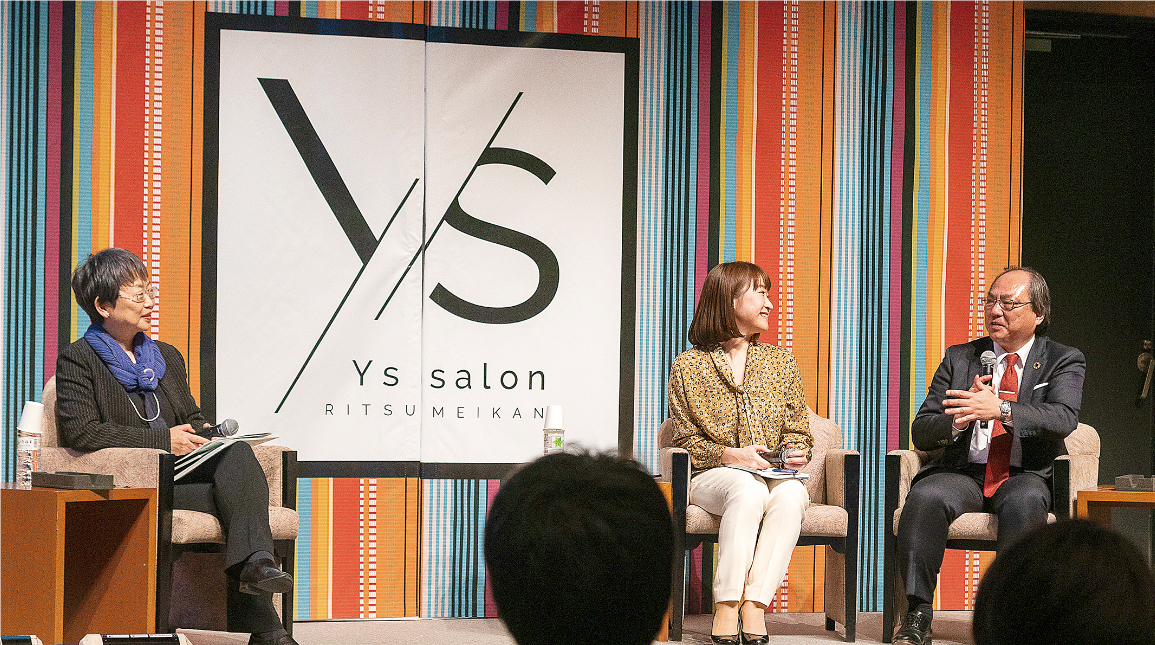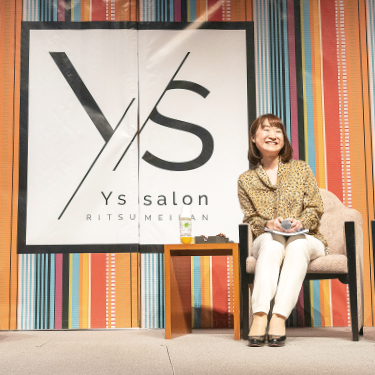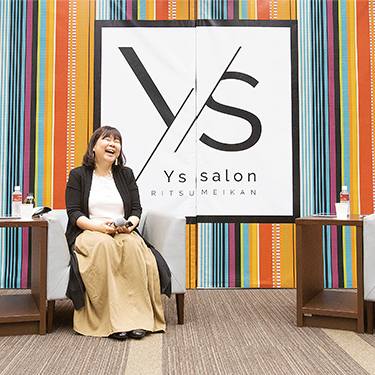
After Associate Professor Nonaka’s talk on food systems design, Chancellor Nakatani, Vice Chancellor Matsubara, and members of the audience shared their reflections.
- Matsubara
- Associate Professor Nonaka explored a range of fascinating topics and even demonstrated the robot whose development she is involved in, so I think this session was informative and stimulating for everyone. First, I’d like to ask Chancellor Nakatani if he has any questions or comments for Associate Professor Nonaka.
- Nakatani
- I first met Associate Professor Nonaka when I took a tour of the College of Gastronomy Management. I was interested in her work because I wondered what a systems engineering expert was doing in a gastronomy college. After hearing her discuss the projects she has been involved in thus far, I was once again amazed at how she transitioned from studying automobiles to studying food. I realize the common theme in your work is systems engineering, but how was the transition for you emotionally?
- Nonaka
- As a graduate student, I attended the School of System Design Management, and the approach of that school was to explore how systems engineering can deal with large and complicated problems when everything in the world is regarded as a system. One of my professors studied manufacturing for aeronautical development, while another professor was a lawyer who researched legal frameworks in terms of systems. Although my research focus has shifted from automobiles to Japanese sake to robots, the idea of approaching my research subjects in terms of systems has remained the same, so personally, I did not find the transition discomforting.
- Matsubara
- Although systems engineering provides the basis for your methodologies and techniques, your scope of research expands when, for whatever reason, you find yourself in a different environment or encounter something new. Instead of tackling something entirely different, you are merely applying your own methodologies in a different way.
Okay, we have received some questions about the jelly. First question: “Do you have plans to turn your delicious jelly into a product?” - Nonaka
- I am exploring a range of possibilities with my joint research partner Yukioh, but we are still discussing when to commercialize the jelly. I would like to continue considering what path we can take next after attending the South by Southwest event in March 2020.
- Matsubara
- Next question: “Can your jelly be used in outer space?”
- Nonaka
- We actually held a discussion with some aerospace experts just the other day. Although the main reason astronauts cannot drink alcohol while they are in space is because it would impair their ability to respond to emergencies, if private citizens start visiting space for leisure purposes in the future, I think it is highly likely that they could enjoy sake and wine jellies.
- Nakatani
- I tried the sake jelly the other day, and because it’s jelly, you end up eating it quickly. It’s like taking a shot, and honestly I got a little tipsy (laughs). I really enjoyed how you showed me the myriad potential for food from the standpoint of systems engineering.

- Matsubara
- Next, we have a comment. “I hope sake jellies can be used to rediscover Japan’s outlying regions and local sake breweries.”
- Nonaka
- I agree. If we can export them without the need for refrigeration, then we can deliver the authentic flavor of Japanese sake all over the world. As for fruits, we will be able to deliver delicious fruit flavored jellies even to those regions where fruit cannot be exported due to restrictions on the types of fruit or logistics issues. Using this technology to encapsulate delicious ingredients from all over Japan is something that really appeals to me.




